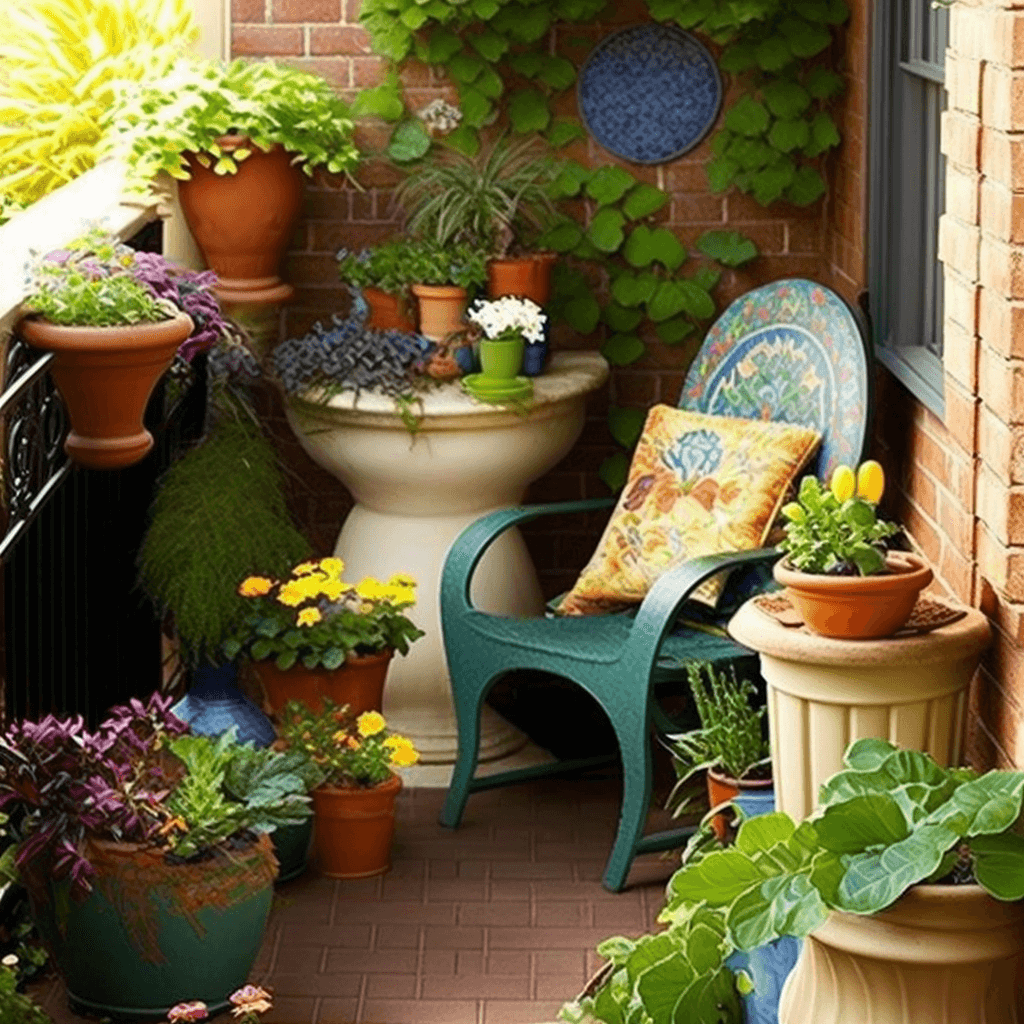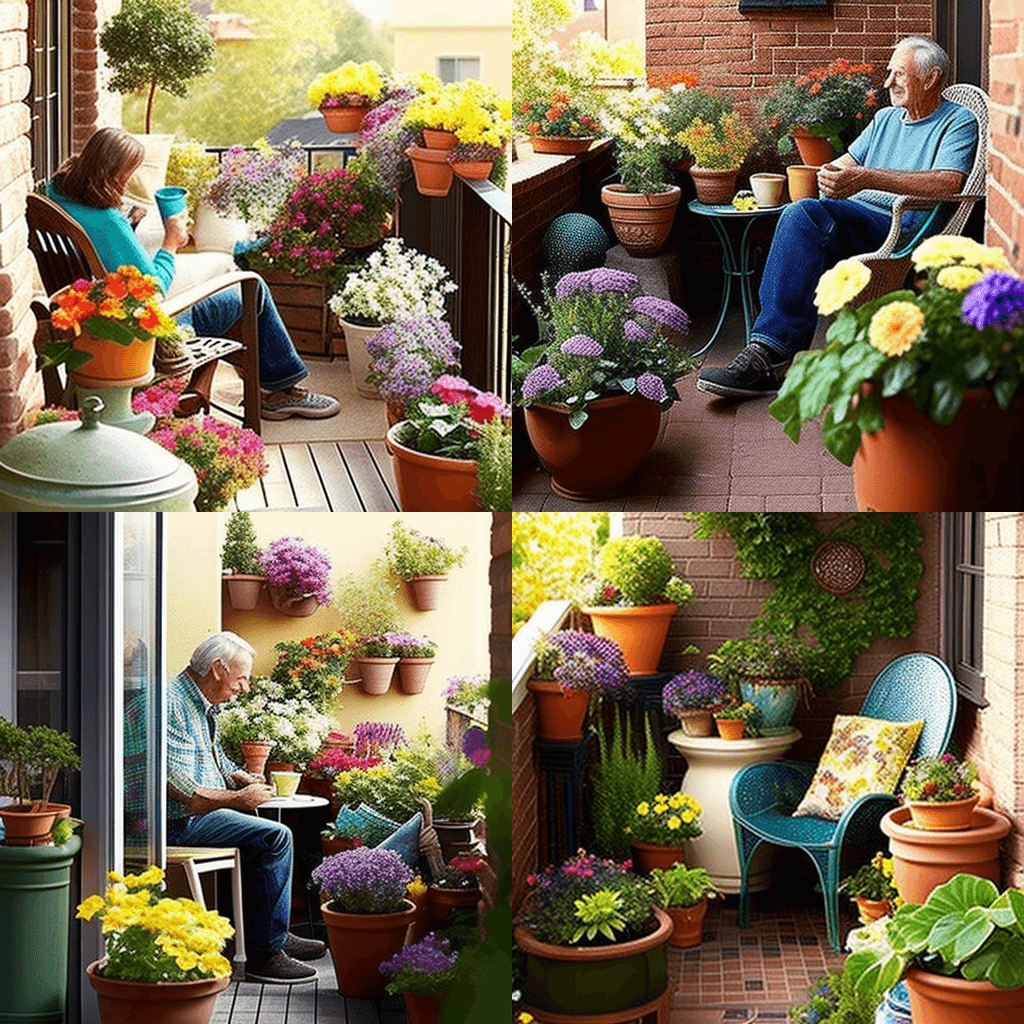Containment gardening is an excellent way to start if you’re interested in gardening but need more space, time, or experience. Container gardens are perfect for small spaces, balconies, patios, and windowsills.
You can grow almost anything in containers, from herbs and flowers to vegetables and fruit trees. In this article, we will discuss everything you need to know about container gardens for beginners.
What is Container Gardening?

Container gardening is a type of gardening that uses containers instead of a traditional garden bed or plot. Containers can be made of almost any material, such as clay, plastic, metal, or wood. They come in various sizes, shapes, and colors, so you can choose the ones that match your decor or personal taste.
Benefits of Container Gardening
Container gardening has many benefits, especially for beginners. Here are some of the advantages:
- Space-saving: Containers take up less space than a traditional garden, so that you can grow more plants in a smaller area.
- Easy to maintain: Container gardens require less maintenance than traditional gardens. You don’t have to worry about weeding or tilling the soil, and you can easily move the containers around to find the perfect spot for your plants.
- Fewer pests and diseases: Container gardens are less susceptible to pests and diseases than traditional gardens, making them ideal for beginners who may not be familiar with pest control methods.
- Improved soil quality: Container gardens allow you to control the soil quality and nutrient content, which can result in healthier plants.
- More accessible: Container gardens are ideal for people with limited mobility, as they can be raised comfortably, making it easier to tend to your plants.
Choosing Containers for Your Garden
When choosing containers for your garden, consider the following:
- Size: Make sure your container is big enough for the plant you want to grow. Some plants, like tomatoes and peppers, require more significant containers than others.
- Material: Choose a material that is durable and will withstand the elements. Plastic containers are lightweight and affordable, while clay pots are more aesthetically pleasing but can be heavier and more expensive.
- Drainage: Ensure your container has good drainage holes to prevent waterlogging, which can harm your plant’s health.
- Color: Choose containers that complement your outdoor decor or create a vibrant display of colors.
Choosing Plants for Your Container Garden
When selecting plants for your container garden, consider the following:
Sunlight
Make sure you choose plants matching the sunlight your container garden receives. Some plants, like tomatoes and peppers, require full sun, while others, like lettuce and spinach, prefer partial shade.
Space
Choose plants that won’t outgrow your container or compete for space with other plants.
Watering needs
Ensure the plants you choose have similar watering needs to avoid over or under-watering.
Climate
Choose plants that suit your climate and will thrive in your area.
Easy Plants to Grow in Containers
If you’re new to container gardening, here are some easy plants to get started with:
Herbs
Herbs like basil, oregano, parsley, and thyme are easy to grow and require minimal care. They are also delicious and can enhance the flavor of your favorite recipes.
Tomatoes
Tomatoes are a popular choice for container gardens and are relatively easy to grow. They require full sun and regular watering.
Peppers
Peppers come in various sizes and colors and can add color to your container garden. They require full sun and well-draining soil.
Lettuce
Lettuce is a great option for container gardens that don’t get full sun. They prefer partial shade and regular watering.
Strawberries
Strawberries are delicious fruit that can be grown in containers. They require full sun and regular watering.
Succulents
Succulents are low-maintenance plants that come in a variety of shapes and sizes. They require well-draining soil and can be grown in small containers.
Dwarf Fruit Trees
Dwarf fruit trees, such as citrus, figs, and apples, can be grown in containers and produce small fruits. They require full sun and regular watering.
How to Plant Your Container Garden
Here are some steps to follow when planting your container garden:
- Fill your container with soil: Use high-quality soil formulated for container gardening.
- Add fertilizer: Add a slow-release fertilizer to your soil to ensure your plants receive the nutrients they need.
- Plant your plants: Make sure you plant them at the appropriate depth and leave enough space between them to prevent overcrowding.
- Water your plants: Water your plants thoroughly after planting, and make sure the soil stays moist but not soggy.
- Mulch: Add a layer of mulch to your container to help retain moisture and prevent weeds.
- Maintain your garden: Make sure you water your plants regularly and prune them when necessary.
Tips for Maintaining Your Container Garden
Here are some tips for maintaining your container garden:
Water regularly
Make sure you water your plants regularly, especially during hot weather. Check the soil moisture level by inserting your finger into the soil. If it feels dry, it’s time to water.
Fertilize regularly
Add a slow-release fertilizer to your container garden every few months to ensure your plants receive nutrients.
Prune your plants
Prune your plants when necessary to encourage healthy growth and prevent overcrowding.
Check for pests and diseases.
Check your plants regularly for pests and diseases, and take action immediately if you notice any issues.
Rotate your plants
Rotate your plants regularly to ensure they receive even sunlight and prevent soil depletion.
Conclusion
Container gardening is an excellent way for beginners to get started with gardening. You can create a beautiful and thriving garden in a small space with the right containers, soil, and plants.
Choose plants that suit your climate and match your sunlight and watering needs. With proper care and maintenance, your container garden will provide fresh herbs, vegetables, fruits, and flowers for years.

